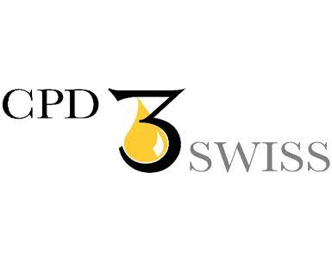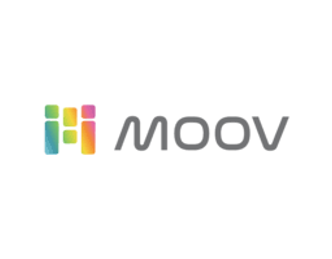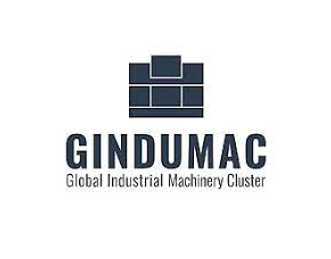123Fab #40
1 topic, 2 key figures, 3 startups to draw inspiration from

Plastic pollution is one of the most important environmental issues of the coming years. Plastic’s low cost and ease of production have made it an indispensable material in many sectors, especially in packaging, accounting for more than 45% of plastic waste generation in 2015. Due to its slow decomposition rate and the fact that 40% of all plastic trash is single-use, plastic waste has rapidly grown, making end-of-life management a burden for policymakers. Last year, France adopted an anti-waste law, setting a goal of 100% recycled plastic by 2025 and a ban on single-use plastic packaging by 2040. In 2015, 8% of plastic was incinerated, 7% was recycled and 55% was disposed of in landfills or the natural environment, while 30% was used. There are many types of plastics, from thermoplastics and thermosetting polymers to crystalline plastics and bioplastics, but the vast majority of plastics are made of polymers.
Today, the primary means of recycling is mechanical recycling, which accounts for more than 99% of infrastructure and business. The principle is simple, it involves crushing plastics into granulates, washing them and then melting them down so that they can then be reused. To be efficient, mechanical recycling requires a clean stream of plastic waste. Thus, thorough sorting needs to be done beforehand to separate plastics by color and type, which makes it impossible to recycle laminated packaging (made of different plastics). Mechanical recycling is also limited because plastic can only be recycled a maximum of 5 to 7 times, and be reused in low-value products, which calls into question the economic viability of this method.
In recent years, chemical recycling has gained momentum, with the goal of providing a solution for hard-to-recycle products and the potential for an infinite number of recycling cycles. Among the chemical recycling processes, depolymerization has attracted the most interest from startups and corporates.
What is depolymerization? Polymers are long associations of chemical entities called monomers. Depolymerization is the process of breaking the bonds of the polymer chains to create a mix of monomers. It is very useful for plastics because the products of this chemical reaction can then be reused.
To tackle the recycling problem, depolymerization of plastic waste can be used in various ways:
- From plastic to fuel: Some, such as CPD-Swiss or Paterson energy, depolymerize any type of plastic waste using pyrolysis (heating the material without oxygen) to create “pyrofuel”, or catalysis (accelerating the chemical reaction by introducing another chemical entity) to create synthetic diesel. Part of the fuel produced can then be re-used to produce heat in the process, making it energy self-sufficient, and the product can be used as an alternative fuel and energy carrier.
- Plastic to feedstock: Nexus fuel and Polycycl focus on some categories of plastics, HDPE, LDPE, PP, and PS (#2,4,5 and 6 in recycling codes), which are not recyclable with conventional methods and represent approximately 60% of the plastics on the market. They use depolymerization to turn them either into petrochemical feedstock or back into virgin plastic (purified plastic resin). The first through pyrolysis, the second through a proprietary chemical recycling technique called Contiflow Cracker. Plastic energy uses the same categories of plastic to produce syngas (used to make the plant run) and feedstock to re-create virgin plastic.
- Plastic to plastic: Some startups focus on recycling one type of plastic such as Pyrowave, which uses microwave-based depolymerization of polystyrene (#6 recycling code) to turn it into styrene, its associated monomer. This styrene can then be re-polymerized into polystyrene indefinitely. Ioniqa on the other hand focuses on PET (#1 recycling code). The company uses a smart fluid (a fluid whose properties can be changed by applying an electromagnetic field) to dissolve the polymers constituting the PET back into monomers, which can, in turn, be used to produce brand new PET. Both these startups aim to provide a new way to attain a truly circular use of these resources.
Corporations are also interested in depolymerization techniques. Four months ago, Shell announced a partnership with Nexus Fuels to scale-up commercial production of chemicals from plastic waste. At the end of 2018, Coca-Cola announced a partnership with Ioniqa to produce new bottles containing at least 50% of recycled PET by 2030, the same year PepsiCo announced a multi-year supply agreement with Loop Industries to produce 100% recycled PET containers using Loop’s depolymerization technology. Sealed Air, a leading packaging corporation, invested in Plastic Energy last year to enhance plastic recycling circularity.
Pre-treatment of plastic waste remains a key factor for recycling. Saperatec has chosen to address the problem of laminated packaging treatment by creating separating fluids that split the various layers of such packaging. The split products can then be re-used. In 2018, adhesive giant Henkel invested in Saperatec to form a collaboration to enrich its recyclable adhesive line.
Depolymerization seems to have gained a lot of momentum in recent years, but green groups are questioning the efficiency of these processes at scale and their environmental impact. Particularly with regard to the potential release of toxins during the processes and their energy intensity compared to mechanical recycling, as well as the carbon emissions entailed by the consumption of plastic-based fuels.
2 Key Figures
39 plastic recycling startups
registered by Crunchbase
Plastic recycling market expected to reach $60.7Bn by 2025
The global plastic recycling market was estimated at $42.3Bn in 2020 and is expected to reach $60.7Bn by 2025, growing at a CAGR of 7.5%.
3 startups to draw inspiration from
This week, we identified three startups that we can draw inspiration from: CPD-Swiss, Nexus Fuels, and Pyrowave.

CPD-Swiss
CPD-Swiss is a Swiss-based startup created in 2012. It specialises in the development and implementation of projects for the production of diesel fuels and storable energy carriers from renewable residual waste materials (biomass) and from organic waste (plastic, synthetic materials, etc.). For this purpose, CPD-SWISS develops and builds industrial plants based on CPD technology (Catalytic Pressureless Depolymerization).

Nexus Fuels
Nexus Fuels is a startup based in Atlanta, provider of waste management services designed to convert waste plastics into plastic feedstocks and fuels. The company’s services reduce plastic waste from being landfilled and has low operating costs, enabling people to convert difficult-to-recycle waste plastics into fuel and virgin plastic.

Gindumac
Based in Ontario, Pyrowave is the developer of a microwave-based chemical recycling technology intended to enable plastic regeneration. The company’s technology regenerates post-consumer plastics by breaking them down into intermediate products that are used to make plastics identical to virgin plastics, thereby enabling customers to reduce plastic waste and be a part of a circular plastic economy.
